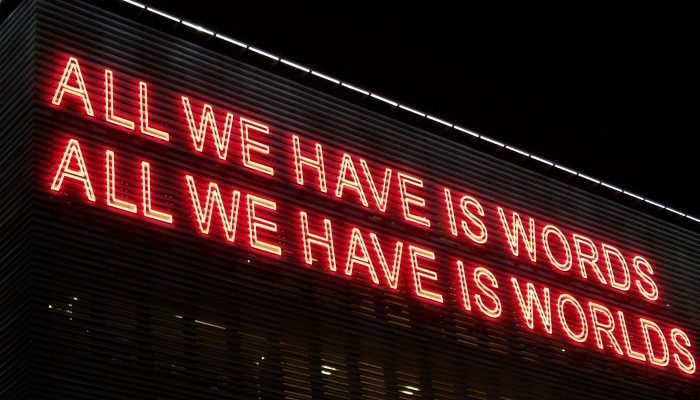Learn about the benefits of constructing a multi-year internship from a MLIS student's perspective.

Sharing our words, transforming our relationships
By Rashed Ahmad, Mandissa Arlain, Valentina Ly, Arvind Singh and Tara Zarrin
As members of the OLA Cultural Diversity and Inclusion Task Force, we recognize the need to choose our words carefully, starting from how we name ourselves to how we use concepts of diversity and inclusion to initiate, advise and mobilize support for appropriate cultural diversity action plans in Ontario libraries.
When talking about diversity and inclusion, conversations are improved enormously when we clearly define and understand the meaning of our terminology. Words do have power, and when talking about power and privilege, words can be oppressive. But words can also be transformative.
Culture: The customs, beliefs, behaviours and/or achievements of a particular time and/or people; behaviour within a particular group (Ontario Human Rights Commission).
We think that there are some core terms and concepts that can help us have more informed discussions on issues related to cultural diversity and social inclusion. In particular, we believe that as library staff, we need to be equipped with shared knowledge, vocabulary and understanding to approach discussions on race, privilege, and power to build mutually respectful and supportive relationships across groups and communities and make libraries truly safe spaces open for all.
As a group, we had discussions on which terms we should use to define ourselves, and which terms to inform our conversations. As vocabulary is evolving and adapting to social change, the many terms used can be overwhelming. We encourage you to explore some of the resources we have identified in a living bibliography to better acquaint yourself with some terminology that can empower you with the knowledge to have meaningful conversations on diversity and inclusion.
Diversity: The presence of a wide range of human qualities and attributes within an individual, group or organization. Diversity includes such factors as age, sex, race, ethnicity, physical and intellectual ability, religion, sexual orientation, educational background and expertise (Ontario Human Rights Commission).
Nina de Jesus (2014) points out that libraries as social institutions play a significant role in perpetuating oppression. Libraries are about freedom to read, of ideas, communication, and education but they are also about great disparity and marginalization. As library staff in Ontario, we can help each other understand that our social and institutional systems are places of oppression as well as places where core values such as diversity, inclusion, respect, open access and intellectual freedom are protected and celebrated.
There are several steps library staff can take to move our field forward towards recognizing and dismantling oppression and building respectful, inclusive library spaces. Understanding your own position within our social system is a good place to begin. Taking this first step of becoming more informed is crucial. You might be tempted to reach out to a colleague or friend who is culturally diverse and ask for help but we believe that responsibility for education is personal. However, we do encourage you to listen to those culturally diverse librarians, co-workers and clients you serve to understand their perspectives.
Inclusion: Appreciating and using our unique differences—strengths, talents, weaknesses and frailties —in a way that shows respect for the individual and ultimately creates a dynamic multi-dimensional organization (Ontario Human Rights Commission).
A 2013 survey by Kumaran & Cai (2015) found that “there are at least 120 first, second, and other generation minority librarians working in (or for) Canadian institutions across the country and beyond” [source?] who need a forum to discuss their issues and to have networking opportunities, and a mentorship program. As part of contributing to this effort we are profiling diverse librarians in a recurring column called culture@work. We encourage diverse librarians and allies to get in touch with us to provide feedback, suggestions and find ways to get involved.
References
Kumaran, M & Cai, H. (2015). Identifying the Visible Minority Librarians in Canada: A National Survey. Evidence Based Library and Information Practice, 10(2).
de Jesus, N. (2014, September 01). Locating the Library in Institutional Oppression. In the Library with the Lead Pipe.
Ontario Human Rights Commission. (2013). Appendix 1: Glossary of human rights terms. Ontario Human Rights Commission. Teaching human rights in Ontario: A guide for Ontario schools. (p 54-64).
Rashed Ahmad is the First Nations Skills Development Advisor at Ontario Library Service North in Sudbury.
Mandrissa Arlain works as a library technician at Ryerson University.
Valentina Ly is a new MLIS grad and works as a research assistant at Mount Sinai Hospital.
Arvind Singh works at the Hamilton Public Library as an information clerk and Sunday supervisor. He is the chair of the OLA Cultural Diversity and Inclusion Task Force.
Tara Zarrin is an information/marketing professional and has worked at various information/records management/marketing environments.


